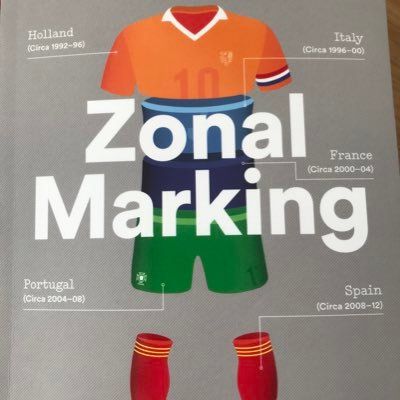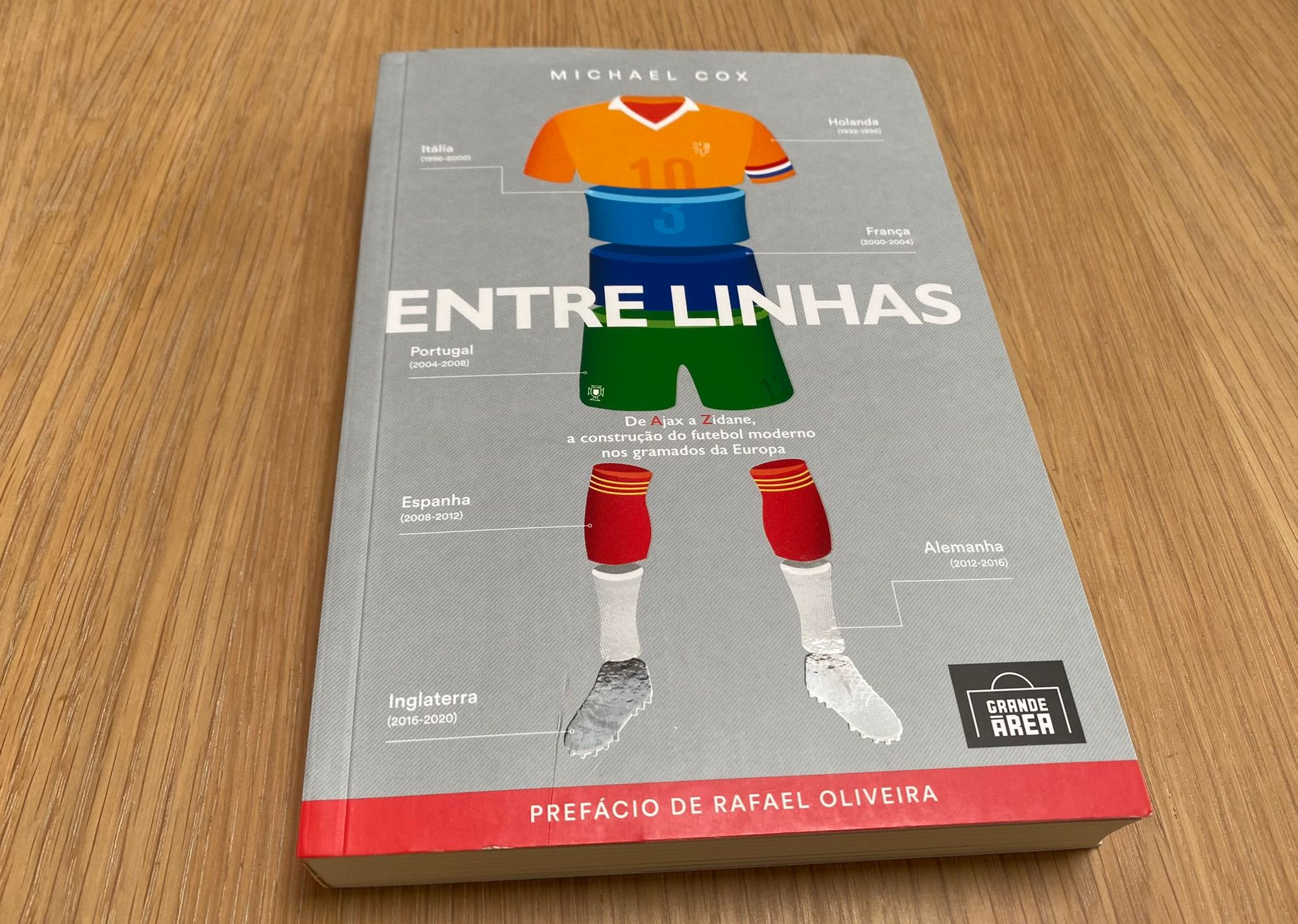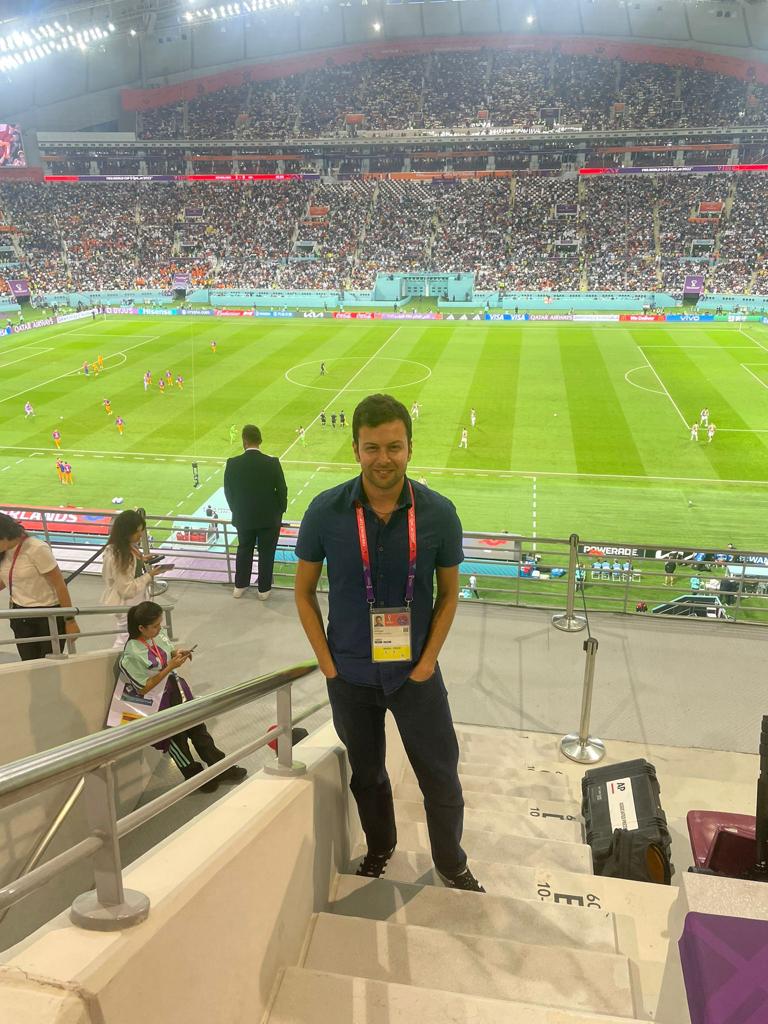By James Dowden, Co-Editor-in-Chief
‘I remember writing about the concept of a winger who might be right-footed but playing to the left and vice versa and coming up with the phrase. I remember at the time people called them inside-out wingers which I thought didn’t work.’
Inverted wingers.
You probably would have heard the term come up in recent years when you’ve been watching football coverage on television, listening to it on the radio, or reading online to describe players such as Arjen Robben who cut inside and shoot with their stronger foot.
The term was first coined by Michael Cox, a football tactics journalist currently writing for The Athletic, who studied politics at the University of Bristol.
He first came up with the term while working on his blog entitled ‘Zonal Marking’ in the Christmas holidays of his final term at Bristol and it has since gone on to become mainstream in football lexicon.
Cox made his first forays into journalism while working for Epigramand swapping his Badock Stoke Bishop first-year halls for the media suite in the SU to lay up the latest print edition on InDesign.
On his time at university, Cox recalls how ‘I probably loved the city more than I loved the university. I used to live on the Triangle and that was a big night out. I have great memories of the city. It was a fantastic place to be.
‘Epigram was probably my favourite thing about the university experience. In my third year, I remember lots of long weekends in the Students’ Union putting together the pages and everything. It was great and it provided a real sense of belonging more than actual any studying or anything.’
Also, at Bristol Cox would head up to Coombe Dingle and jokes about covering the University lacrosse team. ‘Honestly, I don’t think I’d even heard of what lacrosse was before I went to Bristol and then it was suddenly everywhere.’
He also set up the @EpigramPaper Twitter handle that is still in use today.
‘I really came out from that feeling like I’d worked at a proper newspaper and of what journalism was like. Epigram was the one thing that I remember most from my time at university.’
During his time at Bristol Cox was runner up in the student Sports writer of the Year category at The Guardian Student Media awards for his work with Epigram.
In terms of breaking into the notoriously competitive world of sports journalism, Cox recalls how he founded his blog on the tactical side of the sport in 2009, calling it Zonal Marking – a tactical reference to defending set pieces.

‘It was something I always had an interest in and I really liked the analysis side of things. Specifically, I had always wondered why the kind of depth of coverage you get in cricket wasn’t there in football. My approach was to do something different. Try to stand out.’
Cox explains how the 2010 FIFA World Cup in South Africa was a breakthrough moment in his career, coming the summer after he graduated from Bristol.
‘At that point, I was just writing my blog. I think that tactical coverage of that tournament was really poor and I think the difference was it was the first World Cup where Twitter was a big thing. I tried to cover as many games as possible.’
Cox’s blog was picked up by The Guardian and eventually, he worked his way to The Athletic, having also worked for ESPN and The Independent over the years.
At The Athletic he covers both men’s and women’s football and says that ‘It’s good. I’m quite lucky that I’ve got relatively free reign to write about what I want.’
Of course, as with any journalism job, there is never quite one week that’s quite the same, although Cox covers matches by jotting down notes in a notebook and then also rewatching games as well.
‘I try to write down everything that happens and try to find patterns and if possible explain the result but it’s also accepting sometimes that the result can be random. No two weeks are really the same because you’ve always got different clubs and it's good fun but also quite unpredictable in a way I suppose.’
Recently, for one of his favourite pieces he sat down with Women’s 2022 European Championships final winning goal scorer Chloe Kelly to watch back the game with the England international.
‘She was the player of the match and we watched back the Euro final from last year with her. Interviews with football can often be underwhelming as they don’t want to get themselves in trouble and so they don’t really say anything. She hadn’t actually watched the game back and just going through the process when she was playing in it was so interesting.’
In addition to writing articles Cox has also published two books. His first, The Mixer, was released in 2017 and charts the tactical history of the Premier League since its inception. His second, Zonal Marking: The Making of Modern European Football, was published in 2019 in which Cox analyses tactics from around the continent and the impact that these have had on the modern game.
Writing a book was ‘my main ambition’ as Cox puts it and of course, clearly required a huge amount more research than just a one-off article.

‘I really think the most important thing about a book is just finding the structure for it. I think it’s a big leap going from most newspaper articles which are probably going to be 1,000 words maximum and then I think those two books were about 120,000 each. I really loved doing that more than anything else. It’s a big effort.
‘I had people to help for the second who were fluent in the various languages. Then it’s a load of research, reading books, watching old clips of games and highlights.’
In terms of advice for those looking to break into sports journalism, Cox references the classic new football analytics tool – expected goals.
‘You create your own luck. It’s just like expected goals, isn’t it? Put yourself in the right position and eventually something will drop for you.’
In terms of his advice, Cox adds that people should try to find their niche early.
‘I think from my personal experience it's really important to be known for something in particular. I don’t know if that’s more difficult these days but certainly, at the time I started, you could quickly become the go-to person if you made yourself known for that kind of thing.
‘Then my second piece of advice would be to try and find a young journalist who has just got into the industry. I think so much has changed in terms of technology from social media to podcasting there are probably things that I didn’t do that you would need now. Try to find out where journalism is going and then try to establish yourself on that platform or in that format.’
In terms of tactical changes to the game in recent years Cox highlights how ‘I think that two things have been constant. The game is getting faster all the time and the players are more universal. There’s no real specialism now. Then rule changes, even minor ones such as five substitutes, have changed things in aspects of how you have to defend for example. It’s always been changing!’
Cox is heading off to the FIFA Women’s World Cup this summer in Australia and New Zealand. As the conversation rounds off, he notes how much he looking forward to covering another major tournament having also travelled to Qatar for the men’s edition as well as the Women’s European Championship closer to home in England in 2022.
‘I'm going to the Women's World Cup this year down in Australia and New Zealand, which I’m really excited about. I really enjoy covering women's football a lot. It’s something I didn’t recall doing before I joined the Athletic and I hope there’s more coverage of women’s football because it has come on some much recently. The matches are really intense and the attendances are always increasing.’









